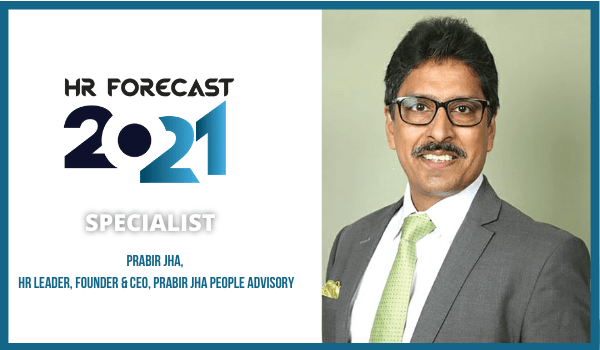2020: What to learn – what to erase
Clearly, 2020 dispelled big myths around physical presence. While one has to concede that many jobs (like making cars) cannot indeed be done virtually, there certainly are many more smarter ways of working. Meetings, reviews and real-time collaboration are all possible without physical presence. I found people more willing to at least explore an alternative, and change their work style last year. The lack of discipline and empathy, with unending hours at work within a home setting are a bother. There needs to be a ‘switch off’ from work. I have heard stories of odd-hour calls, unplanned meetings and still lousy leadership behaviour. All this shows on the faces of employees immediately, and is now visible to their loved ones too. This must stop.
HR has shown great agility and business acumen
Human resources did a good job in 2020 ensuring business continuity, with support from other functions, especially IT. While this must be celebrated, this cannot be a passport to a business function. Companies assume that only those who directly produce or sell are business functions. Despite the pandemic, HR’s evolution as a strategic rather than just another business function is a mixed scorecard. The brownie points for enabling business continuity do not offset the gap on pushing the larger strategic agenda of leadership, culture, change and sustainable businesses. Business continuity has again been more a set of transactions, executed well. HR needs to set the agenda, not just execute it.
Managing hybrid workforce is more challenging
It will be! Great maturity and flexibility in leadership styles will be required to be sensitive to the respective needs and challenges of a hybrid workforce. It will demand integrative thinking. Smart listening and constant communication will be the new skills to master. The alignment of goals and deliverables, leveraging the best of both worlds, will be a major ask of any leader. The ability to build a sense of significance and strategic connect with the supra goal will be essential to make all stakeholders co-own the agenda. Gaps in understanding the larger play, noise in communication, managing differences without physical proximity will be key skills to develop.
“I hope 2021 sees CEOs and CHROs getting out of the classical job description-led way of hiring leaders”
Upskilling leadership or diversity in leadership
Both are key and equally challenging in the current context. Diversity in leadership is hopefully not restricted to mandatory gender representation. It then loses its larger strategic edge — building plurality in thinking and perspectives. There are still too many risk-averse leaders and corporations wanting plug-and-play hires. I hope 2021 sees CEOs and CHROs getting out of the classical job description-led way of hiring leaders.
At the same time, upskilling — functionally and behaviourally — different rungs of leadership must remain a non-negotiable. From my own advisory and coaching experience, I see two clear opposing patterns: one that believes this is still a huge cost that can be put on hold; the other that thinks it is an investment that cannot be delayed if we have to get our leaders future-ready.
Mental health of employees
The appreciation of mental health as an issue has got more cognisance in the context of the pandemic. While employee assistance programmes, counsellors on tap and some virtual-engagement interventions have been happening, I don’t think these are adequate. The issue is one of educating the top leaders about what ‘mental health’ is. There is very little understanding of things like bipolarity. Leaders are quick to dismiss it as ‘volatility’! There is casual and erroneous use of words, such as ‘depression’. We need more education and empathy without pressure cooking our employees to levels of unsustainable stress. We need to coach leaders to practise appreciation and gratitude as a natural style. These will help companies understand and prevent issues and not just heal the psychological health of their workforce.
HR as solution provider for business needs
In practice, it is still about endless reports, reviews and presentations. I wish the C-suite actually reduces their meetings and reviews by half. Data, quantitative or qualitative, helps scope the issue better. We are still only partly ready with tracking, holding or mining data in HR. Most of it is static data, not trend lines. New HR analytics tools can help greatly, provided we start collecting data. In HR, there are so many hard and soft aspects that one can actually track, including the ‘nudge’ principles. But it takes intent, effort and some investment to get started. I hope more companies will look at this as a business-solutions investment.



